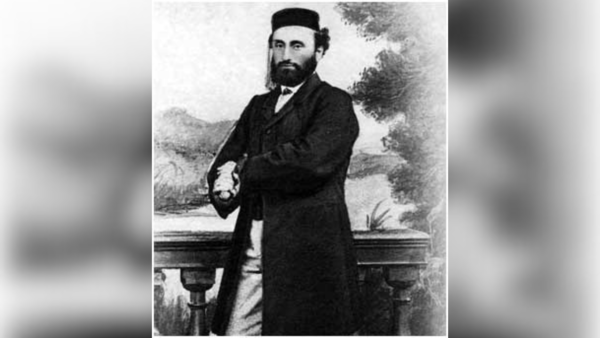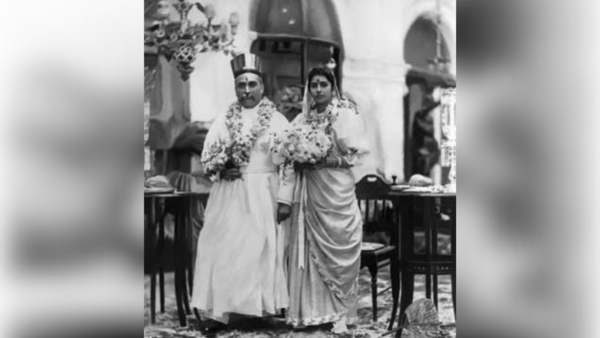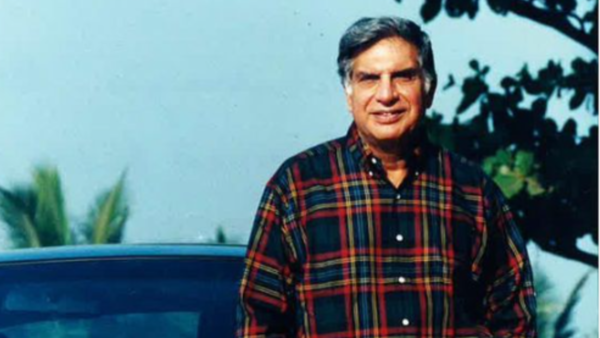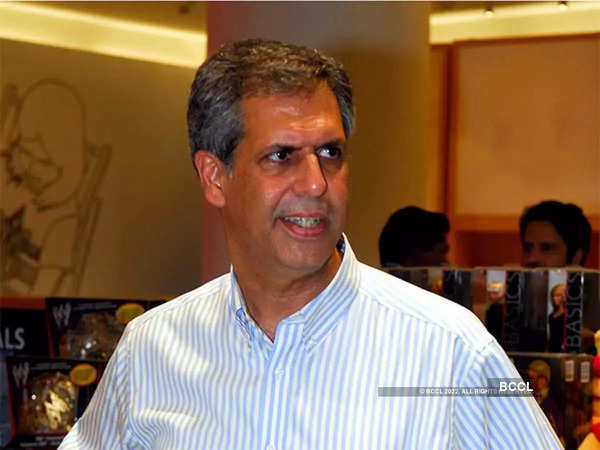The Tata family, a powerful name in the global corporate sector, has long been symbolized with more than just industrial success. Beyond its corporate achievements, the Tata family is significantly rooted in philanthropic principles, creativity, and a strong dedication to societal improvement. With the tragic passing of Ratan Tata, the beloved industrialist, it is important to look deeper into the rich history and legacy of the Tata family, a name synonymous with trust, leadership, and commitment to India’s progress.

Image: Tata trusts
It all started with Jamsetji Tata
Jamsetji Tata was the founder of the Tata Group. He was more than a businessman; he was a visionary with a commitment to India’s prosperity. Born in 1839 in Navsari, Gujarat, Jamsetji envisioned industries that would not only fuel economic growth but also be beneficial for the welfare of the Indian people. His pioneering ventures in textiles, steel, and hydroelectric power laid the foundation for what would become one of the world’s largest conglomerates.
Hirabai Daboo Tata
Hirabai Daboo was Jamsetji Tata‘s wife and companion on his journey to establish the Tata dynasty. Together, they created a family that would eventually bear the mantle of leadership for generations. Her sons, Sir Dorabji Tata and Ratanji Tata, played vital parts in establishing the Tata Group’s future.
Sir Dorabji Tata
Sir Dorabji Tata, the elder son of Jamsetji, played his role in realizing his father’s dreams. Born in 1859, Dorabji not only expanded the Tata Group’s business ventures but also made extraordinary contributions to Indian sports and philanthropy. He was instrumental in setting up Tata Steel and investing in the Indian team’s participation in the Olympics, showcasing his diverse interests.
Under his leadership, the Tata Group ventured into industries like steel, electricity, and power, solidifying the group’s presence across sectors.

Image: Tata trusts
Meherbai Bhabha Tata
Meherbai Bhabha, Dorabji Tata’s wife, was a supporter of women’s education and social reform. She was an intelligent and kind woman who pushed for women’s education and opposed social problems such as child marriage. Her marriage to Dorabji in 1898 resulted in a life of travel and exploration, but her heart was always dedicated to societal improvement. Meherbai’s early death in 1931 left a legacy of empowerment, particularly among Indian women.
Sir Ratan Tata
Sir Ratan Tata, born in 1871, was the younger son of Jamsetji and carried forward the family’s tradition of philanthropy. Known for his deep concern for the underprivileged, Ratan Tata’s contributions ranged from supporting Mahatma Gandhi’s anti-apartheid movement to funding India’s first archaeological excavation. His immense wealth, much of which he donated, led to the establishment of the Sir Ratan Tata Trust, a premier philanthropic institution that continues to uplift society.
His love for the arts and commitment to research saw him contribute to the development of Mumbai’s Prince of Wales Museum and establish a chair for poverty research at the London School of Economics. Sir Ratan Tata’s legacy is deeply intertwined with India’s progress, particularly in the fields of education and social welfare.
Navajbai Ratan Tata
Navajbai Sett, Sir Ratan Tata’s wife, was a pioneer in her own right. Following her husband’s death, she took over the reins of the Ratan Tata Trust and became a powerful figure within the Tata family. She established the Ratan Tata Institute, which provided vocational training and support for underprivileged women. Her influence extended into the arts and philanthropy.

Image: Tata Group
Naval Tata
Naval Tata, an adopted son of the Tata family, was a cornerstone in the Tata Group’s leadership. Born in 1904, Naval was known for his leadership in Tata Steel and his contributions to labour relations, where he nurtured harmony between workers and management. Naval Tata’s tenure with the Tata Group spanned decades, and his impact on Indian hockey and his work in labour policies were particularly notable.
His second marriage to Simone Dunoyer brought her into the Tata fold, where she became a transformative figure in the beauty industry by founding Lakmé.
Sooni Commissariat
Sooni Commissariat, the first wife of Naval Tata, was the mother of Ratan Tata and Jimmy Tata. After her marriage, Sooni embraced the Tata name. Her life was marked by deep connections with the Tata family, including a close friendship with Meherbai Bhabha. Naval Tata and Sooni separated their ways when Ratan Tata was just 10 year old.

Ratan Tata, Chairman Emeritus of Tata Sons, passed away on Wednesday at the age of 86 in a Mumbai hospital. (Photo: Instagram @Ratantata)
Ratan Naval Tata
Ratan Naval Tata, the most recent head of the Tata Group, led the conglomerate through a period of immense global expansion. Born in 1937, Ratan Tata was the grandson of Sir Ratan Tata and son of Naval Tata. After studying at Harvard and Cornell, he joined the Tata Group, where he eventually took over as Chairman of Tata Sons in 1991. Under his leadership, the group acquired major international brands further solidifying the Tata Group’s position on the global stage.
He was not just known for his business skills but also his philanthropy. Ratan Tata’s contributions to education, healthcare, and rural development are as vast as his corporate achievements.
Jimmy Tata
Jimmy Tata, the younger brother of Ratan Tata, is a figure known for his simplicity and privacy. Despite being part of the prominent Tata family, Jimmy lives a modest life, residing in a 2BHK apartment and choosing not to own a mobile phone.
Although Jimmy holds significant stakes in Tata companies, such as Tata Steel, Tata Motors, and TCS, he avoids the limelight. His private nature has kept him out of media attention, though he shares a strong bond with his elder brother Ratan Tata.

Noel Tata
Noel Tata
Noel Tata, the son of Simone Dunoyer and Naval Tata, is another important character in the Tata family’s story. As a retail industry expert, Noel Tata was instrumental in the growth of Trent, the parent company of Westside outlets. His leadership within the Tata Group guarantees that the family maintains its influence in a variety of industries.
Leah Tata
Leah Tata, one of Noel Tata’s daughters, is emerging as a prominent figure within the Tata Group. After completing her education at the IE Business School in Spain, Leah took on significant roles in the group’s hospitality arm, particularly with the Indian Hotels Company and Taj Hotels. She has been instrumental in driving the global expansion of Tata’s hospitality businesses.
Maya Tata
Maya Tata, another daughter of Noel Tata, has established herself within the Tata Group’s digital and investment ventures. With academic credentials from Bayes Business School and Warwick University, Maya has played a very important role in the Tata Opportunities Fund and Tata Digital. One of her major achievements includes her leadership in the development and launch of Tata Neu.
Neville Tata
Neville Tata, the son of Noel Tata, is currently leading the retail arm of the Tata Group. As the head of Star Bazaar, a major retail chain operated under Trent Limited, Neville has demonstrated strong business acumen and leadership skills. His role in overseeing the operations of Star Bazaar has reinforced his position as a crucial figure in the Tata retail business.





